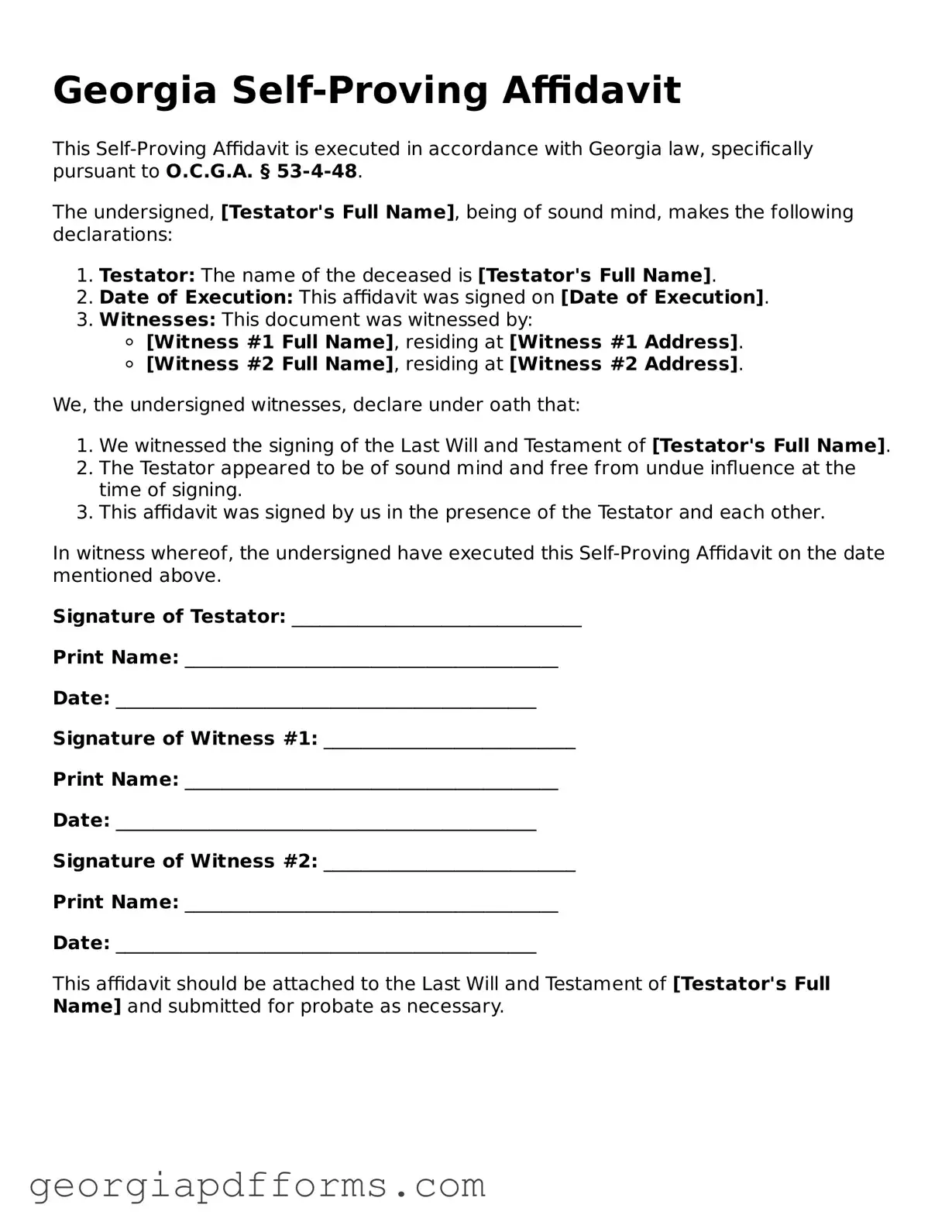Official Self-Proving Affidavit Document for Georgia State
The Georgia Self-Proving Affidavit is a legal document that allows a testator's will to be validated without the need for witnesses to appear in court. This form simplifies the probate process by confirming that the will was properly executed and that the testator was of sound mind. Understanding how to properly use this affidavit can streamline the handling of a deceased person's estate.
Access Editor Now

Official Self-Proving Affidavit Document for Georgia State
Access Editor Now
Almost there — finish the form
Fill and complete Self-Proving Affidavit online fast.
Access Editor Now
or
Free PDF File
